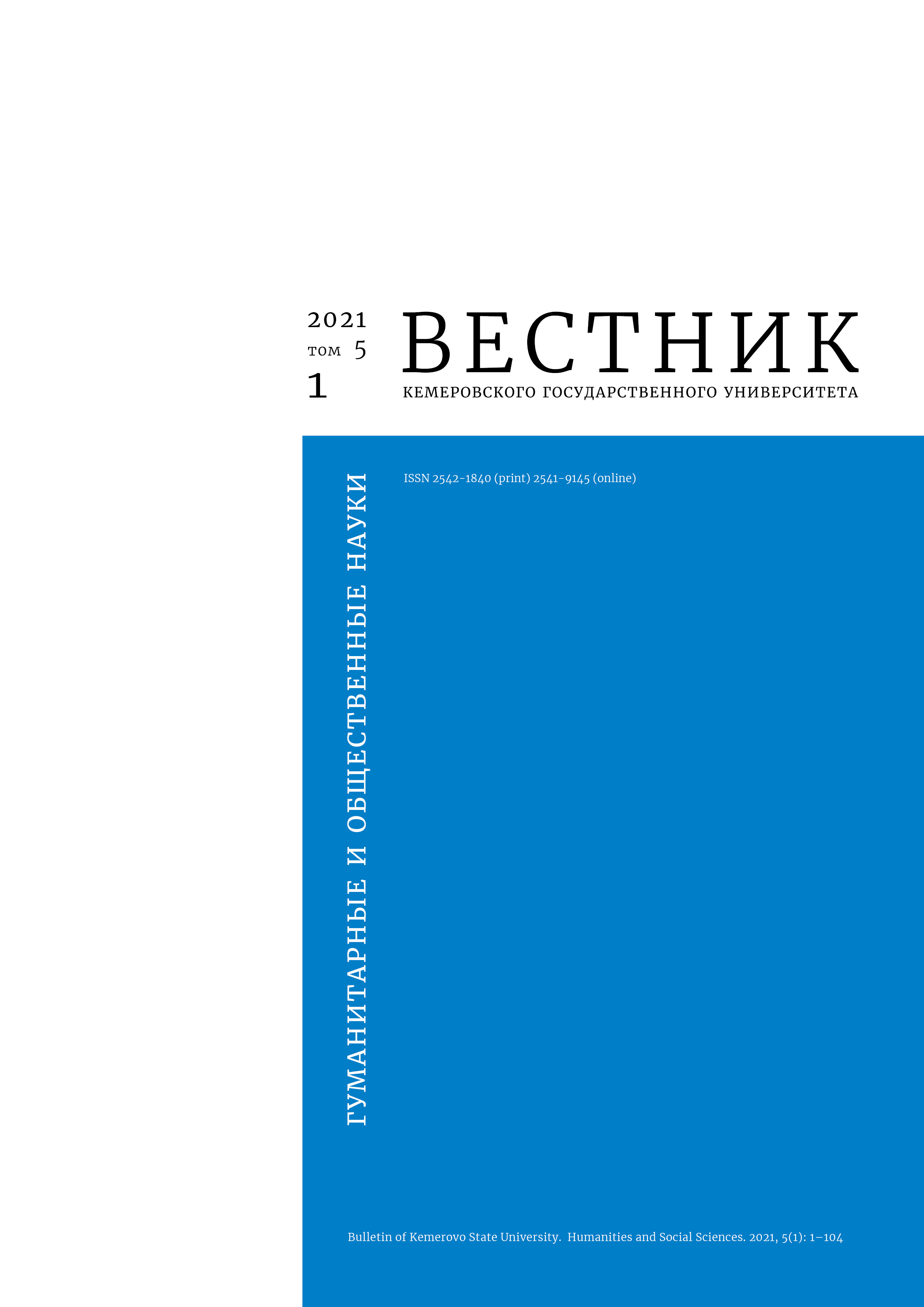Novokuznetsk, Russian Federation
Kemerovo, Russian Federation
UDC 37
The article deals with teenagers' motivation, which is important for education, project of life, etc. The research objective was to assess a set of measures aimed at increasing cognitive motivation and motivational awareness in learning process. The study focused on the development of motivational sphere in 14- and 15-year-olds. The article introduces an analysis of patterns and factors of the motivational development, as well as types of motives behind educational and cognitive activity. The empirical research featured the motivational sphere of teenagers, which demonstrated instability, failure avoidance, and a decrease in interest in learning. Their conscious cognitive interest in educational activity decreased as the leading activity shifted from educational to communicative. The article also describes a set of measures aimed at increasing the level of cognitive motivation and the motivational awareness of educational activities. The experiment included educational techniques that promote students' involvement in the learning process, as well as group sessions with elements of psychological training, aimed at raising self-esteem, improving communication skills, and building a friendly attitude towards peers. The empirical and statistical methods confirmed the effectiveness of the new method.
personality motivational sphere, motives of cognitive activity, motives of educational activity, social motives, achievement motivation, failure avoidance motivation, sense-forming motives, interests of adolescents
1. Zimniaia A. I. Educational motivation. Pedagogical psychology. Moscow: LOGOS, 2004, 130-156. (In Russ.)
2. Markova A. K. Formation of teaching motivation at school age. Moscow: Prosveshchenie, 1983, 96. (In Russ.)
3. Bozhovich L. I., Slavina L. S. Mental development of a schoolboy and his upbringing. Moscow: Znanie, 1979, 96. (In Russ.)
4. Makarycheva I. N. Peculiarities of the adolescents' motivational sphere as a source of increasing the effectiveness of the learning process. Koncept, 2012, (2): 13-20. (In Russ.)
5. Zvereva G. Iu. Development of students' motivation to learn. Molodoi uchenyi, 2015, (22): 787-792. (In Russ.)
6. Kovalev V. I. Motives of behavior and activity, ed. Bodalev A. A. Moscow: Nauka, 1988, 191. (In Russ.)
7. Viliunas V. K. Psychological mechanisms of biological motivation. Moscow: Izd-vo MGU, 1986, 206. (In Russ.)
8. Uznadze D. N. General psychology, tr. Chomakhidze E. Sh. Moscow: Smysl; St. Petersburg: Piter, 2004, 412. (In Russ.)
9. Malenova A. Yu., Sedymova K. S. The situation of academic, factors and features of coping behavior it in adolescence. Herald of Omsk University: Series "Psychology", 2019, (2): 32-41. (In Russ.) DOI:https://doi.org/10.25513/2410-6364.2019.2.32-41
10. Turchin A. S., Marikhin S. V. Effect of anxiety on the personal qualities of adolescents. Chelovecheskii faktor: Sotsialnyi psikholog, 2018, (2): 228-236. (In Russ.)
11. Gaivoronskaia I. B., Pinchuk O. A., Stepanova E. O. The relationship between emotions and motivation of high school students. Topical issues of psychological development and personality formation: methodology, theory and practice: Proc. II All-Russian Sci.-Prac. Conf., St. Petersburg, 24-25 Sep 2019. St. Petersburg, 2019, 77-80. (In Russ.)
12. Tsirkunova N. I. Motives for teaching teenagers with different levels of performance. Psychological Vademecum: Psychological phenomenology in the educational environment: a multidisciplinary approach, eds. Bogomaz S. L., Karaterzi V. A., Pashkovich S. F. Vitebsk: Vitebskii gosudarstvennyi universitet im. P. M. Masherova, 2019, 272-277. (In Russ.)
13. Markova A. K., Matis T. A., Orlov A. B. Formation of motivation for learning. Moscow: Prosveshchenie, 1990, 191. (In Russ.)
14. Ruchka O. N. Features of the project activity in older adolescents in the formation of universal educational actions. Historical and Social-Educational Idea, 2017, 9(2-2): 235-241. (In Russ.) DOI:https://doi.org/10.17748/2075-9908-2017-9-2/2-235-241
15. Grigorovich L. A., Kachalina E. B. Learning reflection as a means of self-knowledge. Traditions and innovations of civic education in the modern educational space: Proc. II All-Russian Sci.-Prac. Conf. with Intern. participation, Moscow, 20 Apr 2019. Moscow, 2019, 29-32. (In Russ.)
16. Malkovskaia T. N. Education of social activity of senior schoolchildren. Leningrad: B. i., 1973, 172. (In Russ.)
17. Ananiev B. G. Selected psychological works, eds. Bodalev A. A., Lomov B. F. Moscow: Pedagogika, 1980, vol. 2, 287. (In Russ.)
18. Florovskiy S. Yu. Style of the interpersonal relation and socio-psychological adaptedness of modern teenagers. Problemy sovremennogo obrazovaniia, 2019, (6): 36-51. (In Russ.)
19. Pogoreltseva A. A. The emergence of a sense of adulthood in teenagers. Implementation of the competence approach in the system of professional education of a teacher: Proc. VII All-Russian Sci.-Prac. Conf., Evpatoriia, 23 Apr 2020. Simferopol, 2020, 301-305. (In Russ.)
20. Duplensky S. V., Gibadullina Iu. M. Usage of interactive forms and methods of during the process of creating thinking development. Perspektivy nauki i obrazovaniia, 2018, (3): 49-53. (In Russ.)
21. Meleshkova N. A., Borisova M. V., Musokhranov A. Iu. Psychological aspects of interaction and cooperation between the teacher and student. Uchenye zapiski universiteta imeni P. F. Lesgafta, 2020, (1): 415-419. (In Russ.) DOI:https://doi.org/10.34835/issn.2308-1961.2020.1.p415-419
22. Rusalov V. M., Velumyan N. A. Correlation between professional preferences and learning interests at adolescent and early youth age. Nauchnoe mnenie, 2013, (4): 210-214. (In Russ.)
23. Medvedev I. F. A categorical analysis of self-education. Mir nauki, kul′tury, obrazovaniya, 2015, (6): 96-99. (In Russ.)
24. Abdukerimova Z. K., Fadeeva V. V. Development of teenagers interpersonal communication skills. Vestnik Kaliningradskogo iuridicheskogo instituta MVD Rossii, 2010, (3): 109-112. (In Russ.)
25. Lyusova O. V., Timasheva L. V. Age aspects of self-awareness in crisis adolescence. Fundamentalnye issledovaniia, 2015, (2-7): 1518-1521. (In Russ.)
26. Ospanova Zh. E. Development of motivation of adolescents in the cognitive activity. Youth in the XXI century: philosophy, law, pedagogy and management: Proc. VI Intern. Sci.-Prac. Conf., Ekaterinburg, 8 Dec 2014. Ekaterinburg, 2015, 129-131. (In Russ.)
27. Lukianova M. I. Educational motivation as an indicator of the quality of education. Narodnoe obrazovanie, 2001, (8): 77-89. (In Russ.)
28. Andreeva A. D., Prikhozhan A. M. Methods of diagnostics of teaching motivation and emotional attitude to teaching in middle and high school classes. Psikhologicheskaia diagnostika, 2006, (1):33-38. (In Russ.)
29. Fetiskin N. P. Socio-psychological diagnostics of the development of the individual and small groups. Moscow: Izd vo In-ta Psikhoterapii, 2002, 488. (In Russ.)
30. Ilin E. P. Motivation and motivations. St. Petersburg: Piter, 2000, 512. (In Russ.)


















